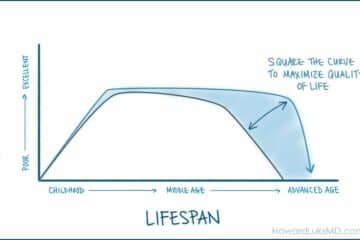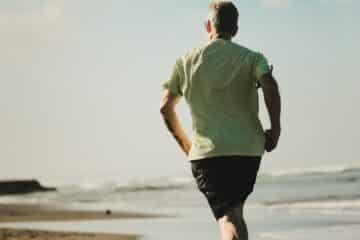
Like it or not, it turns out that sitting is really bad for your health.
Between our jobs, our commute and our desire to rest after a long day with our children or at work — we tend to sit a lot. To counter that, many of us pound the pavement, hit the gym or head out onto the road on our bikes to put in an hour of hard work. All good, right? Nope.
It turns out that sitting leads to significant changes in the bio-markers which align with our risk of developing heart disease and other diseases. This is true even if you exercise vigorously 1 hour per day. Yes… Sitting for “too long” can negate the effects of exercise.
This study found that prolonged sitting is positively associated with an increase in “all-cause” mortality. Simply put, if you sit excessively you have a higher risk of developing heart disease, diabetes, cancer, and a diminished cancer survivorship.
The negative effects of sitting too long were even more pronounced in people who performed little or no exercise.
We are not exactly sure of the mechanism why sitting is so bad for our health. The paper quoted below is probably on point trying to determine why. It shows that after only 7 days of adopting a lifestyle of sitting too often the volunteers developed significant changes in their lipid profiles, cholesterol, waist size, glucose levels and their body mass index. So, it appears that glucose and fat metabolism is adversely effected by sitting too long. We know that these are all high risk factors for diabetes, heart disease, weight gain and “all-cause” morbidity.
Researchers attached a monitor to nearly 700 participants over 7 days and found that each additional 2 hours per day spent sitting was significantly associated with higher body mass index, waist circumference around 2 centimeters, fasting plasma glucose, total/high-density lipoprotein (HDL) cholesterol ratio (5%), triglycerides (12%), 2-hour plasma glucose (4%), and with lower HDL cholesterol.
Source: Standing Provides Real Advantages Over Sitting | Medpage Today
What are we to do?
Make Your Day a Little Harder
The answer is obvious … but we do not have exact numbers. I can’t tell you that sitting for 30 minutes is OK, but 45 minutes is bad. We do know that if you make the effort to make your day just a little harder you will likely reap significant health related benefits.
How you ask?
- Take the stairs
- Track your activity level
- Load an app that alerts you every 30 minutes to get up and walk around
- Get a standing desk
- Take the elevator to a different floor and walk up two flights. Walk down if your knees hurt :-)
- Have a walking meeting.
- Don’t text each other in the house.. go find them.
- Don’t email your colleague, go find them.
So, get up, get moving and try not to sit in one place for too long. Whether you use an app, an alarm or make it a habit to do it every half hour on the hour.. in the long run you will be healthier.














Great article, good pointers of how to work on this issue since its such a common issue but easily forgotten. We definitely need to promote this more to everyone we know!